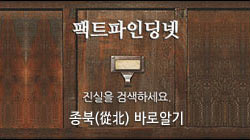For the whole of the second act—the play’s rising action—Hamlet delays his revenge by pretending to be mad. We learn from Ophelia that Hamlet is behaving as if he is mad with love for her. We see him make fun of Polonius by talking nonsense which contains half-hidden jokes at Polonius’s expense. Hamlet tells Rosencrantz and Guildenstern that he has 'lost all [his] mirth' (II.ii.). Only at the end of Act 2 do we learn the reason for Hamlet’s delaying tactics: he cannot work out his true feelings about his duty to take revenge. First, he tells us, he doesn’t feel as angry and vengeful as he thinks he should: “I[…]Peak like John-a-dreams, unpregnant of my cause” (II.ii.). Second, he’s worried that the Ghost wasn’t really a ghost but a devil trying to trick him. He decides he needs more evidence of Claudius’s crime: “I’ll have grounds/More relative than this” (II.ii.).
As the rising action builds toward a climax, Hamlet’s internal struggle deepens until he starts to show signs of really going mad. At the same time Claudius becomes suspicious of Hamlet, which creates an external pressure on Hamlet to act. Hamlet begins Act Three debating whether or not to kill himself: “To be or not to be—that is the question” (III.i.), and moments later he hurls misogynistic abuse at Ophelia. He is particularly upset about women’s role in marriage and childbirth—“Why wouldst thou be a breeder of sinners?” (III.i.)—which reminds the audience of Hamlet’s earlier disgust with his own mother and her second marriage.
2막 전체에서 ―극의 상승활동―Hamlet은 광기를 가장해서 복수를 지연시킨다. 우리는 Ophelia로부터 Hamlet이 그녀에 대한 사랑 때문에 미친 것처럼 행동하고 있다고 듣는다. 우리는 그가 Polonius를 희생해서 반쯤 숨겨진(진실이) 농담을 담고 있는 무의미한 말들을 함에 의해서 Polonius를 희롱하고 있는 것을 본다. Hamlet은 Rosencrantz와 Guildenstern에게 '[그의] 모든 기쁨'을 잃어 버렸다고 말한다. 2막의 끝에서야 우리는 그의 전술(복수 실행)의 연기의 이유를 알게 된다: 복수를 해야 될 그의 의무에 대한 감정을 도출해 낼 수 없다(는 것이다). 첫째, 그는 그가 당연히 느껴야 한다고 생각하는 것만큼 분노나 복수심을 느끼지 않는다고 우리에게 말한다: “나의 목적(cause)을 저버리고(unpregnant=unquickened:빨리 하지 않는) 백일몽 환자처럼 헤매고 다니고 있어.(peak=mope 방황하다)”. 둘째, 그는 그 유령은 진짜 유령이 아니고 그를 속이려는 악마라고 걱정한다. 그는 Claudius의 범죄에 대해서는 더 많은 증거가 필요하다고 결론을 내린다: “이보다 더 적절한(relative) 증거를 가져야겠다.”
극의 상승활동이 클라이맥스로 향해서 축적되어 갈 때, Hamlet의 내적 갈등은 그가 정말로 미친 짓을 하는 징표를 보이기 시작할 때까지 심화된다. 동시에 Claudius는 Hamlet을 의심하게 되고 이것이 Hamlet이 행동하도록 외적 압력을 만들어 낸다. Hamlet은 자살을 할지 말지에 대해서 논쟁하면서 3막을 시작한다: “사느냐 죽느냐― 그것이 문제야.” 그리고 얼마 후에 Ophelia에게 여성 혐오증적인 독설을 퍼붓는다. 그는 결혼과 출산에 있어서 여성들의 역할에 분노하고 있다―“당신은 왜 죄인을 증식시키는 사람이 되려고 합니까?”—이것은 관중들에게 극의 초에 그 자신의 어머니와 그녀의 두 번째 결혼에 대한 Hamlet의 혐오감을 상기시켜 준다.
* 해설
Hamlet을 속이는 것은 바로 외견이라는 사실이 아이러니(irony)의 핵심이다. 왜냐하면 왕은 실제로는 전혀 기도하지 않고 있었고, Hamlet의 추론은 잘못된 가정과 잘못된 외견에 근거를 두고 있으며, 이러한 오류로 인해 왕이 기도를 통해 영혼을 淨化(정화)하고 있다고 오판하고 그를 죽이지 않은 것이다. 그는 궁내대신 Polonius를 자기를 염탐하고 있는 왕이라고 착각했기 때문에 죽인다. Hamlet은 선의로 행동하지만 원래의 의도와는 반대로 악을 행하게 된다. 의도와 행동이 일치하지 못하게 되는 것이다. 생각이 행동을 따라가지 못하는 것이다. 그는 자신도 모르게 Claudius가 경험하는 상황과 비슷한 상황에 놓이게 된다. 그는 죄악의 속박에서 탄식하고 있는 Claudius의 상황을 재연하고 있는 것이다.
‹오, 덫에 걸린 내 영혼, 벗어나기 위해 몸부림칠수록 더 꼼짝 못 하게 되는구나!›
왕의 유죄를 확신한 Hamlet은 정의의 수호자로서 그리고 징벌의 벼락을 치는 하늘의 대리인으로서 의기양양하게 복수의 칼을 들지만 악인을 처단하지 못할 뿐 아니라 엉뚱하게도 죄 없는 Polonius를 살해하게 된다. 그는 이제 피 묻은 손과 죄악으로 오염된 정신을 가지게 된다. 그는 악과 싸웠지만 오히려 그 악에 매이게 된다. 정의의 실현이라는 원래의 목표는 더욱 더 멀어지게 된다.
Hamlet은 '생각의 창백한 그늘'이라는 말로써 행동을 마비시키는 생각의 위력에 대해 독백한 적이 있었다. 이제 그는 “내 생각은 피를 보아야 되고 그렇지 않으면 아무 소용이 없어!”라고 생각하게 되고 복수에만 몰두할 각오를 한다. 이것은 패배의 징후이다. 이상주의적 열망의 패배와 좌절은 위험한 폭력을 낳는다는 것은 현대사에서 흔히 볼 수 있는 현상이다. 비극적 영웅으로 태어난 Hamlet이 발견하고 수용해야 될 것은 인간이 거대담론이나 이상에 사로잡히면 그 담론이나 이상의 크기에 비례해서 장애도 많아진다는 것이고 또한 神에 가까울 만큼 이성적 능력이 뛰어난 사람은 생각을 행동으로 옮기기 전에 좌우를 철저하게 살펴야 하며 이렇게 하는 것은 능력을 발휘하기 위해 지불해야 되는 대가라는 것이다.













 朴承用
朴承用







 트위터
트위터 페이스북
페이스북 미투데이
미투데이 요즘
요즘 네이버
네이버































